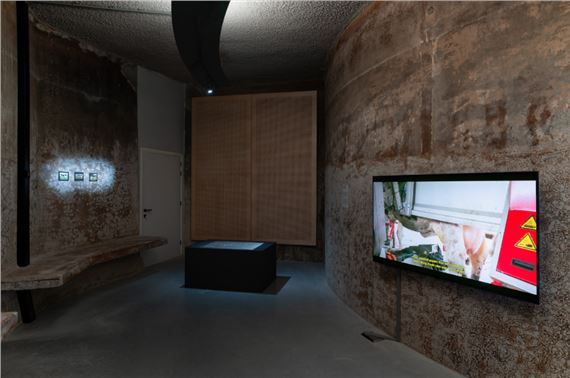The Limits to Growth Chapter 2: From Raster To Vector: The Netherlands as Profit Landscape
A group exhibition on the malleability and profitability of the Dutch landscape through global and advanced capitalism.
For centuries humans have been working against nature in the Netherlands. Dykes are raised, polders are deepened, water is directed to areas where it was not held before, and conversely water is pumped out of areas that used to be naturally rich in water. We build cities, towns and roads, without attentiveness to the local, natural environment, its conditions and dynamics. Increasingly, we have exhausted our living environment to a point at which adaptation, let alone recovery and regeneration are no longer possible. We are increasingly accelerating drought, floods, soil subsidence, heat stress, downpours and crop failures through the continued depletion and exhaustion of natural ecosystems. The time has come to foster new alliances with nature and our shared living environment. Nature can act like a sponge and a container (think of soil which is able to retain water), as a barrier shielding us from the wind (think of dunes and floodplains), as an airconditioning (think of forests and parks where temperatures are considerably lower than in concrete and paved sites), and as a nursery for animals and other organisms we depend on for our subsistence (think of insects and soil life). Additionally, more nature means more places to recover and strengthen both physical and mental health: not just for humans, but equally for all the forty five thousand organisms with whom we share this land.

Recommended for you
A group exhibition on the malleability and profitability of the Dutch landscape through global and advanced capitalism.
For centuries humans have been working against nature in the Netherlands. Dykes are raised, polders are deepened, water is directed to areas where it was not held before, and conversely water is pumped out of areas that used to be naturally rich in water. We build cities, towns and roads, without attentiveness to the local, natural environment, its conditions and dynamics. Increasingly, we have exhausted our living environment to a point at which adaptation, let alone recovery and regeneration are no longer possible. We are increasingly accelerating drought, floods, soil subsidence, heat stress, downpours and crop failures through the continued depletion and exhaustion of natural ecosystems. The time has come to foster new alliances with nature and our shared living environment. Nature can act like a sponge and a container (think of soil which is able to retain water), as a barrier shielding us from the wind (think of dunes and floodplains), as an airconditioning (think of forests and parks where temperatures are considerably lower than in concrete and paved sites), and as a nursery for animals and other organisms we depend on for our subsistence (think of insects and soil life). Additionally, more nature means more places to recover and strengthen both physical and mental health: not just for humans, but equally for all the forty five thousand organisms with whom we share this land.
















